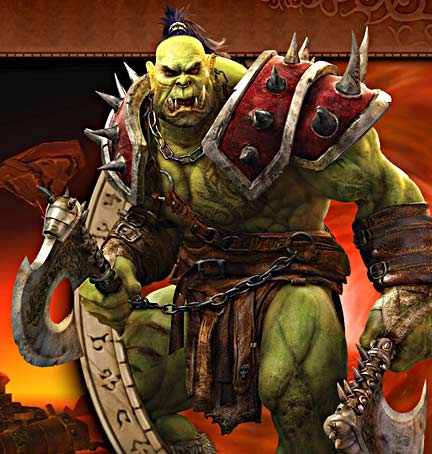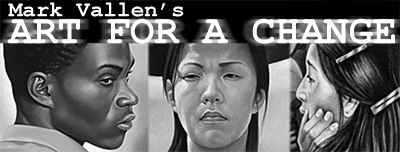Obama and the Orcs
You may categorize the following as an expanded definition for Totalitarian Postmodern culture. On Dec. 9, 2013, Americans learned more about President Obama’s all encompassing surveillance program that uses the U.S. National Security Agency (NSA) in an ongoing espionage operation that sucks up personal information from everyone that uses the internet or any type of electronic communications. It should be remembered that four months earlier, on Aug. 6, 2013, Mr. Obama went on The Tonight Show with Jay Leno, of all places, where he stated categorically that the U.S. does not have a “domestic spying program.”

The Guardian, the New York Times, and ProPublica collaborated in publishing reports on Mr. Obama’s spying operation that should give pause to all those who cherish the right to privacy.
The Dec. 9 revelations are based upon documents disclosed by the American whistleblower, Edward Snowden. It has been revealed that since 2008, the NSA has been surveilling the estimated 48 million players of the online computer games, World of Warcraft (WoW), Second Life, and other online role-playing games.
The NSA has not only been monitoring the users of these games. They have been collecting their personal data, their communications with other players, and their online social networks and profile photos. Furthermore, they have infiltrated the online games with agents whose duty it is to actively recruit game players as potential informers for U.S. intelligence agencies.
The number of intelligence agencies that have infiltrated the games under anonymous avatars are so numerous that a special “deconfliction” group had to be set up in order to keep intelligence agents from inadvertently snooping on each other. The Pentagon, C.I.A., F.B.I, and the U.K.’s Government Communications Headquarters (GCHQ), all have agents spying on online gamers.
The mass NSA surveillance also included compromising Microsoft’s Xbox Live online mulitplayer gaming and digital media service. It must now be assumed that all virtual environments offered by Xbox Live are monitored by the NSA. Blizzard Entertainment, the company that makes World of Warcraft, made it known that it was “unaware of any surveillance taking place,” adding that if such spying was occurring, it would be done without the company’s “knowledge or permission.” At the time of this writing Microsoft had declined to comment on their Xbox Live platform being used extensively by the NSA in spying operations, likewise the company behind the production of Second Life, Linden Lab, declined comment.

And why is there deep intelligence work being carried out by the NSA in the realm of those Orcs, Gnomes, Night Elves, and Humans that virtually populate WoW?
Why are there undercover NSA agents mixed in with the simulated pretty young things that socialize and flirt with each other in Second Life?
Because, the NSA felt it would be a gamble to leave the gaming community “under-monitored.”
In the words of the NSA, gamers represent a “target rich communications network” they dare not leave unobserved, least terrorists gather there cloak-and-dagger style to exchange secret plans for attacking soft targets in the West. By implication, every other “under-monitored” sphere of public life must be surveilled and infiltrated.
In addition, the Washington Post published a report on Dec. 10, 2013 that the NSA is using web browser “cookies” to conduct mass surveillance. Based on another NSA document leaked by Edward Snowden, the article revealed that the government has been using Google “PREF” cookies to gather intelligence on untold numbers of people. Cookies are the bits of personal information that are saved to your computer when you have visited a website, they record the sites you visit and what you view, they also allow Big Brother to track and spy on you.
On Nov. 27, 2013 the press reported that yet another document leaked by Mr. Snowden revealed that the NSA is “gathering records of online sexual activity and evidence of visits to pornographic websites as part of a proposed plan to harm the reputations of those whom the agency believes are radicalizing others through incendiary speeches.” The NSA says it is only interested in compiling profiles on the porn habits of Muslim militants so as to “call into question a radicalizer’s devotion to the jihadist cause.”
Are we so sure that the Obama administration would never apply the term “radicalizer” to members of the Tea Party or to antiwar protestors? And why not, they are already spying on those that play online fantasy games! Malicious government snooping has certainly taken place before; read my article Remembering Jean Seberg before you say that the U.S. government would never use a fabricated sex-scandal to destroy the career and reputation of an American citizen.
The story of Jean Seberg (1938-1979) provides the contextual background for why Mr. Obama’s NSA surveillance is so dangerous a threat, not just to the basic democratic rights of all, but to creative professionals working in the fields of visual art, music, literature, cinema, etc. Art must be produced in environs free of government spying, intimidation, and bullying, or it will become self-censoring, timid, and conformist. In other words… it ceases to be art altogether and instead becomes an accessory to power. Those involved in the arts must come to the fore to denounce the rise of the maximum surveillance state before it is too late.
On December 10, 2013, over 500 international writers signed the statement, A Stand For Democracy In The Digital Age, which was published in 30 papers around the world. The petition by Writers Against Mass Surveillance demands an end to Big Brother-like spying, warning that “A person under surveillance is no longer free; a society under surveillance is no longer a democracy. To maintain any validity, our democratic rights must apply in virtual as in real space.” So far the statement has been signed by authors and writers from 81 different countries, and signatories included five Nobel Prize winners and a great number of celebrated writers.
I would like to take this opportunity to express my full support for the petition campaign created by Writers Against Mass Surveillance, and I encourage those professionals engaged with the written word to sign the statement. I await the organizing of a similar petition initiated by other arts professionals. However, let us have no illusions; those of us who believe in democracy and human rights have our work cut out for us. Mainstream political parties and leaders will not defend our rights… that will be a task for the people to take up.

